
-
 Keys into Melbourne third round with Sinner, Djokovic primed
Keys into Melbourne third round with Sinner, Djokovic primed
-
Bangladesh launches campaigns for first post-Hasina polls

-
 Stocks track Wall St rally as Trump cools tariff threats in Davos
Stocks track Wall St rally as Trump cools tariff threats in Davos
-
South Korea's economy grew just 1% in 2025, lowest in five years

-
 Snowboard champ Hirano suffers fractures ahead of Olympics
Snowboard champ Hirano suffers fractures ahead of Olympics
-
'They poisoned us': grappling with deadly impact of nuclear testing
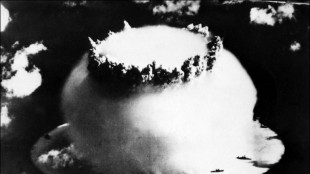
-
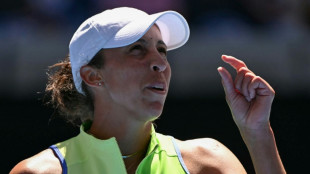 Keys blows hot and cold before making Australian Open third round
Keys blows hot and cold before making Australian Open third round
-
Philippine journalist found guilty of terror financing

-
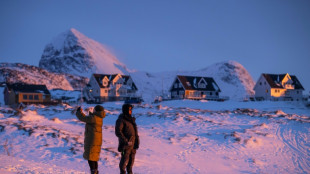 Greenlanders doubtful over Trump resolution
Greenlanders doubtful over Trump resolution
-
Real Madrid top football rich list as Liverpool surge

-
 'One Battle After Another,' 'Sinners' tipped to top Oscar noms
'One Battle After Another,' 'Sinners' tipped to top Oscar noms
-
Higher heating costs add to US affordability crunch
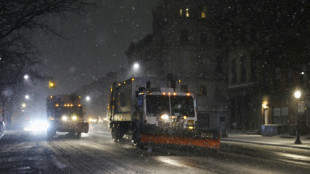
-
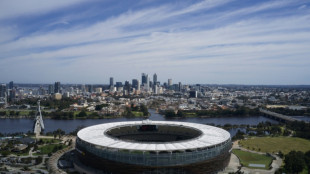 Eight stadiums to host 2027 Rugby World Cup matches in Australia
Eight stadiums to host 2027 Rugby World Cup matches in Australia
-
Plastics everywhere, and the myth that made it possible
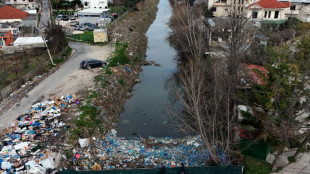
-
 Interim Venezuela leader to visit US
Interim Venezuela leader to visit US
-
Australia holds day of mourning for Bondi Beach shooting victims
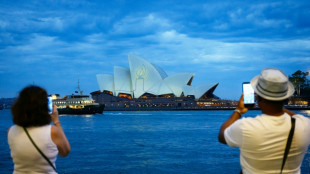
-
 Liverpool cruise as Bayern reach Champions League last 16
Liverpool cruise as Bayern reach Champions League last 16
-
Fermin Lopez brace leads Barca to win at Slavia Prague

-
 Newcastle pounce on PSV errors to boost Champions League last-16 bid
Newcastle pounce on PSV errors to boost Champions League last-16 bid
-
Fermin Lopez brace hands Barca win at Slavia Prague

-
 Kane double fires Bayern into Champions League last 16
Kane double fires Bayern into Champions League last 16
-
Newcastle pounce on PSV errors to close in on Champions League last 16

-
 In Davos speech, Trump repeatedly refers to Greenland as 'Iceland'
In Davos speech, Trump repeatedly refers to Greenland as 'Iceland'
-
Liverpool see off Marseille to close on Champions League last 16

-
 Caicedo strikes late as Chelsea end Pafos resistance
Caicedo strikes late as Chelsea end Pafos resistance
-
US Republicans begin push to hold Clintons in contempt over Epstein
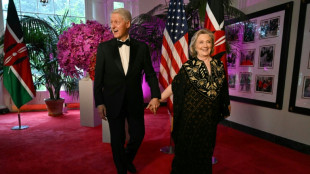
-
 Trump says agreed 'framework' for US deal over Greenland
Trump says agreed 'framework' for US deal over Greenland
-
Algeria's Zidane and Belghali banned over Nigeria AFCON scuffle

-
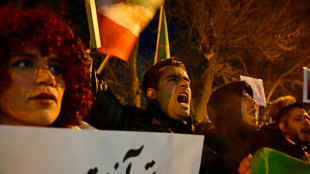 Iran says 3,117 killed during protests, activists fear 'far higher' toll
Iran says 3,117 killed during protests, activists fear 'far higher' toll
-
Atletico frustrated in Champions League draw at Galatasaray

-
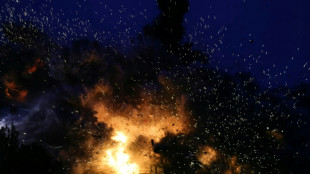 Israel says struck Syria-Lebanon border crossings used by Hezbollah
Israel says struck Syria-Lebanon border crossings used by Hezbollah
-
Snapchat settles to avoid social media addiction trial

-
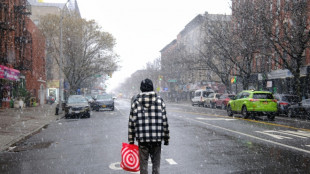 'Extreme cold': Winter storm forecast to slam huge expanse of US
'Extreme cold': Winter storm forecast to slam huge expanse of US
-
Jonathan Anderson reimagines aristocrats in second Dior Homme collection

-
 Former England rugby captain George to retire in 2027
Former England rugby captain George to retire in 2027
-
Israel launches wave of fresh strikes on Lebanon
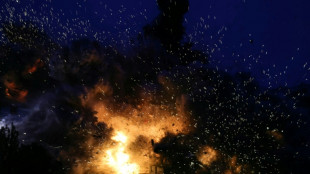
-
 Ubisoft unveils details of big restructuring bet
Ubisoft unveils details of big restructuring bet
-
Abhishek fireworks help India beat New Zealand in T20 opener

-
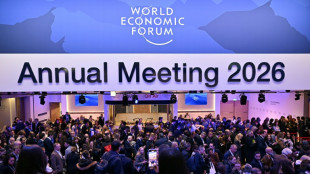 Huge lines, laughs and gasps as Trump lectures Davos elite
Huge lines, laughs and gasps as Trump lectures Davos elite
-
Trump rules out 'force' against Greenland but demands talks

-
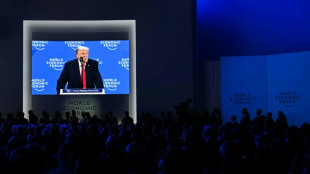 Stocks steadier as Trump rules out force to take Greenland
Stocks steadier as Trump rules out force to take Greenland
-
World's oldest cave art discovered in Indonesia
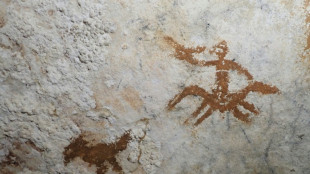
-
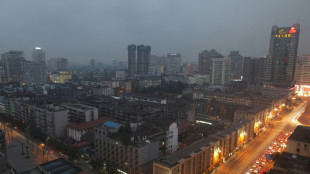 US hip-hop label Def Jam launches China division in Chengdu
US hip-hop label Def Jam launches China division in Chengdu
-
Dispersed Winter Olympics sites 'have added complexity': Coventry
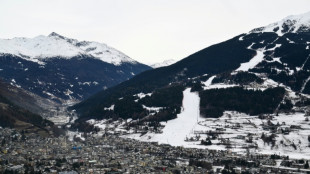
-
 Man City players to refund fans after Bodo/Glimt debacle
Man City players to refund fans after Bodo/Glimt debacle
-
France's Lactalis recalls baby formula over toxin
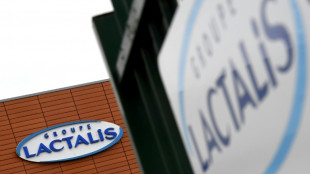
-
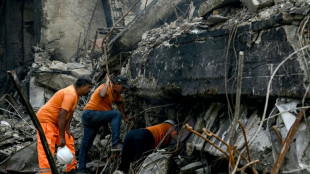 Pakistan rescuers scour blaze site for dozens missing
Pakistan rescuers scour blaze site for dozens missing
-
Keenan return to Irish squad boosts Farrell ahead of 6 Nations

-
 US Treasury chief accuses Fed chair of 'politicising' central bank
US Treasury chief accuses Fed chair of 'politicising' central bank
-
Trump rules out force against Greenland but demands 'immediate' talks


Canadian lake ground-zero for Anthropocene epoch
Scientists on Tuesday designated a small body of water near Toronto, Canada as ground-zero for the Anthropocene, the proposed geological epoch defined by humanity's massive and destabilising impact on the planet.
Layered sediment at the bottom of Lake Crawford -- laced with microplastics, fly-ash spread by burning oil and coal, and the detritus of nuclear bomb explosions -- is the single best repository of evidence that a new, and challenging, chapter in Earth's history has begun, members of the Anthropocene Working Group concluded.
"The data show a clear shift from the mid-20th century, taking Earth's system beyond the normal bounds of the Holocene", the epoch that began 11,700 years ago as the last ice age ended, working group member Andy Cundy, a professor at the University of Southampton, told AFP.
After years of deliberation, the Canadian lake was selected from among 12 candidate sites around the world -- including another lake, coral reefs, ice cores and an ocean bay in Japan -- as the Anthropocene's so-called golden spike.
"The sediment found at the bottom of the Crawford Lake provides an exquisite record of recent environmental change over the last millennia," said working group chair Simon Turner, a professor at University College London.
"It is this ability to precisely record and store this information as a geological archive that can be matched to historical global environmental changes."
Those changes are currently on dramatic display: last week was the hottest globally on record. Out-of-control forest fires have been ravaging Canada for months, while the US and China are coping with unprecedented heat, flooding and drought at the same time.
Humanity has burned so much fossil fuel that concentrations of planet-warming CO2, meanwhile, have increased by half.
Sea surface temperatures have hit new highs in recent weeks, and Antarctic sea ice last month was 17 percent below the previous record low for June.
- 'Great Acceleration' -
Last month scientists reported that so much water has been pumped from underground reservoirs that Earth's geographic North Pole has shifted -- by nearly five centimetres (two inches) per year.
According to the rules of the International Commission on Stratigraphy (ICU), which in 2009 mandated a team of geologists to assess evidence for the Anthropocene, there must be a synchronous "primary marker" for a proposed boundary that is detectable in the geological record almost anywhere on the planet.
For the Anthropocene, plutonium cast off by hydrogen bomb tests provides that "global fingerprint", explained Cundy.
"The clearest marker for a single year -- which gives an abrupt and effectively instantaneous snapshot -- is plutonium, because there's so little of it naturally present."
That means 1952 -- when the United States first detonated a huge hydrogen bomb in the Marshall Islands as a test -- could become the Anthropocene's boundary year, he said.
Smaller atom bomb explosions before that left mostly regional imprints.
A sharp, hockey-stick increase across a dozen markers of humanity's growing impact -- including population, water use, greenhouse gas emissions, and forest loss -- bunched around the middle of the 20th century add up to what scientists call the Great Acceleration.
The "epoch of humans" first proposed in 2002 by chemistry Nobel Paul Crutzen is widely accepted within science as a reality, but faces daunting hurdles for formal validation by the gatekeepers of Earth's official geological timeline of eon, eras, periods and epochs, such as the Jurassic and the Cretaceous.
The Anthropocene's recommendations must be approved by super-majority vote of two separate committees before final validation by the International Unions of Geological Sciences (IUGS).
The heads of those bodies have thus far expressed sharp scepticism towards the Anthropocene, mostly on technical grounds.
"The vote in the working group is on a routine step at the lowest level," IUGS General Secretary Stanley Finney told AFP.
The working group has yet to submit its final recommendation to the International Commission on Stratigraphy, he noted.
"Only then can it be given peer review, and the evidence and arguments truly evaluated," Finney said.
M.Furrer--BTB




